13 REASON WHY Season 4: Goodbyes Are Always The Hardest
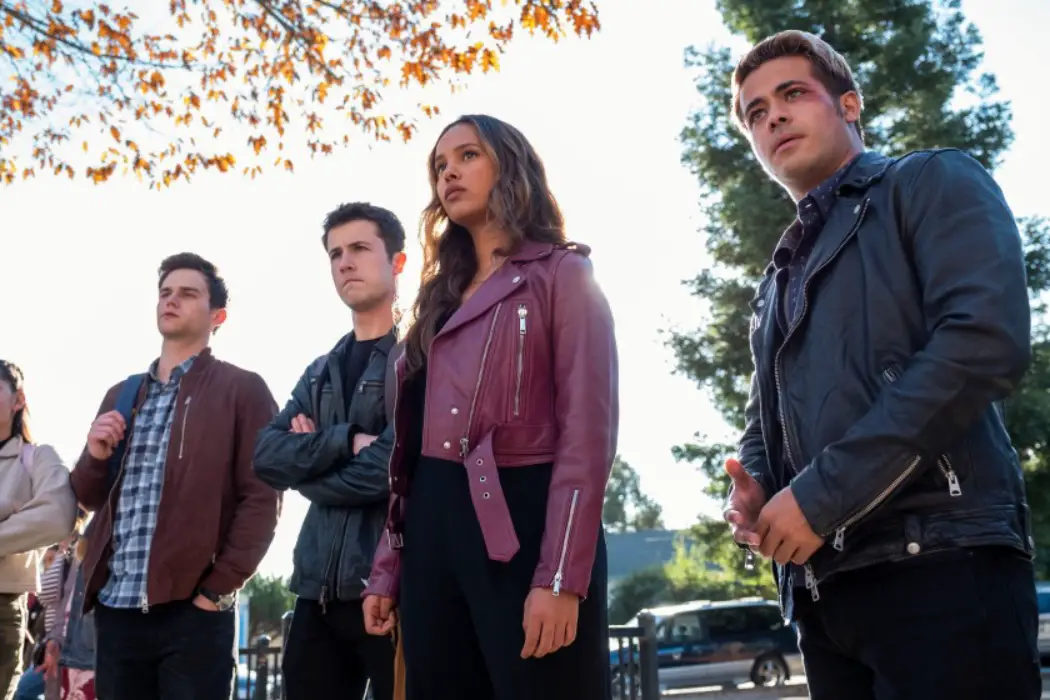
Stephanie Archer is 39 year old film fanatic living in…
“Will you survive high school?” A constant overarching question as 13 Reasons Why returned for a fourth and final season to attempt to deliver an answer to viewers, one that not only speaks to teens of today, but to viewers of all ages.
13 Reasons Why has been a series that has vehemently strived to force us to pay attention, though dramatized, and to consider the topics facing our teens in a modern age. While season four has its bumps in the road, the lens does not falter, keeping its focus locked on the wreckage these teens not only create for themselves but the issues the world has created for them.
As the first episode dawns and the path to the end finally begins, you must ask yourself, “Are you ready to pay attention?”
Starting With a Funeral
When 13 Reasons Why episode 1 “Winter Break” opens, it is the beginning of a eulogy, a foreshadowing moment to viewers that death does not rest. For a moment, the minister doesn’t seem to be speaking to, or about, the person lying in the casket. While it is immediately clear she is addressing the mourners in the pews of the church, who have become all too familiar with the practice, it feels as though she is speaking to the viewer. While the fourth wall is never broken, it becomes harder to deny the feeling that she is speaking to you.
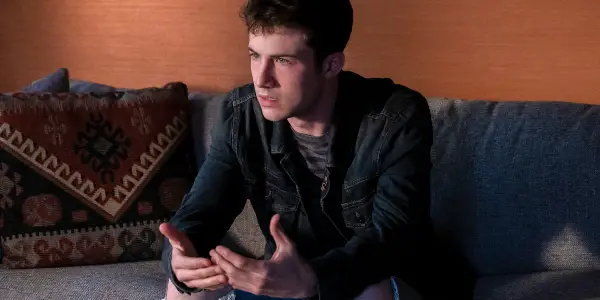
“How did we get here again?” It’s a question both characters and audience members have asked over the last few years and seasons, both of the series and of real life. It feels like one, ever-frequent funeral. How do we keep finding ourselves at these funerals, witnessing despair on the news, and watching loved ones cope with the loss of their children? While this eulogy spans the opening of the first three episodes, it resonates throughout the season’s entirety.
It is a powerful opening, stripped of the drama yet poignant to the reality of the world that continues behind the camera. As the series continues beyond these moments, there is a sharp focus given to not only the society we have created for our children to live and grow in but the transitional period that high school essentially is. It is four years of transitions, from junior high to college, from childhood into adulthood. With each year, the expectations and weight of the world are shifted more onto teens’ shoulders, the challenges greeting them day in and day out far different than the generations before.
At times, season four is one of the most stressful seasons yet. There is tension and fear for its characters, especially Clay (Dylan Minnette). You might find yourself gasping, crying, and debating whether you can handle another episode. This particular feeling is at its strongest at the conclusion of episode 5, “House Party,” where a cliffhanger had me racing to watch the next episode, only to be stopped dead in my tracks as a disclaimer for “Thursday” warns of images of school violence that may be disturbing.
I sat in front of my computer debating whether I wanted to continue forward, even with memories rushing back of Clay stepping in from of Tyler (Devin Druid), preventing him from shooting the spring dance in season one. Is this where we discover who we will say goodbye to or does this mean more than one of the friends meet a grizzly end this season? Could I watch a dramatization of what has become too commonplace in the real world? What plays out is more terrifying than what I could have imagined, as we see an environment of school shootings and violence that students not only have to live through but also have to train for. While most certainly dramatized, there are similarities to the school lockdown plans I have heard implemented throughout the country, actions that make us even more reactive than before, leaving the hope for proactive behaviors behind.
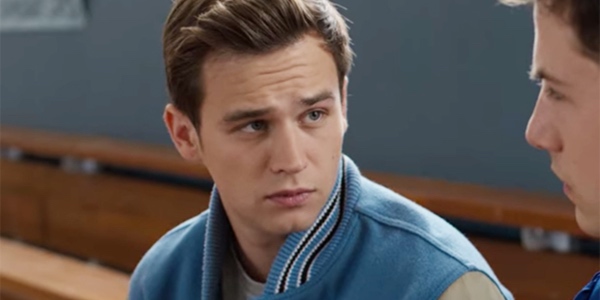
It calls into question the focus school boards and society have zeroed in on in the wake of escalating school shootings and the need to combat their existence. At what point do we begin tackling what causes someone to launch an attack on their classmates, rather than throwing students and teachers into a simulated environment many are ill-equipped to handle. The acceptance of schools as a battleground is far from a solution.
Mental Health Again at the Forefront
This is a tough season for Clay, a season that finally circles back to its primary character, though at the sacrifice of depth in the storylines of others. As frustrating as it is at times, season three has introduced a variety of issues only grazed upon here, it feels right the series ends with a focus on Clay. Season one propelled Clay into leadership and a continuous struggle with mental health, and this final season sees him crumble under the weight of it all.
Minnette embraces Clay’s deteriorating state, weaving in and out of sanity and confusion, balancing the struggles of not only a teen but a human being. He has made decisions he needs to learn to live with and experienced loss many of us will never know. After four years, it’s become too heavy for him to carry any longer and he must choose to push forward or give up. You feel for his character, finding the disregard of the friends he has sacrificed so much for an even bigger punch.
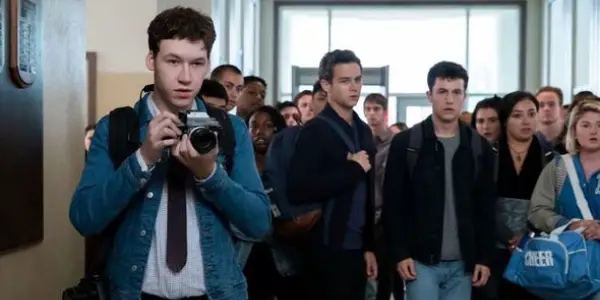
Season 4 is a deeply rooted examination of mental health, reaching beyond Clay, giving further depth to the season. With big themes like learning to love oneself and allowing others to love you as well, the season brings many characters full circle in their journeys, completing their transitions into adulthood while finding inner acceptance of the decisions they have made over the years. Many characters struggled with the trauma that defined them, yet season four gives them a chance to grow, not allowing their trauma be them, rather becoming a small part of who they are and who they will become. It’s not an easy ride, and not everyone makes it to the finish line.
The Good and the Bad
The final season of 13 Reason Why definitely had its high and low points. It feels rushed, crammed to completion, though not due the overstuffing of ideas as with the last season. Unlike in past seasons, season 4 concludes with only 10 episodes to finish its narrative. This may have aided the season’s rushed feeling, but other issues exist, like the lack of attention to the overwhelming amount of topics the series has attempted to bring to the audience’s attention over the last four years. Nearly all of the problems that had been crammed into season three are skimmed over, resolutions provided in blink-and-you’ll-miss-it sentences.
While the season feels rushed, the series’ final hour and a half episode “Graduation” somehow remains overly drawn out. As with the season, “Graduation” had its ups and downs, guaranteeing at least a few teardrops and a satisfactory ending, if you have the patience to hang on until the end.
One of the biggest successes of season four was not the closing of each person’s story, but rather the growth that was shown in the subtlety of their actions, movements, and decision making. While the series may have ended, their stories are far from over. These are not the same teens we were introduced to in season one.
Saying Goodbye
Though season three felt forced in continuing its relevancy, season four of 13 Reasons Why coincidentally becomes its most relevant season to date. Following the events of “Thursday,” many of the students are left angry and resentful. There is a tension, a static charge that has been building throughout the halls of the high school throughout the season, throughout the entire series. In a moment, enough becomes enough.
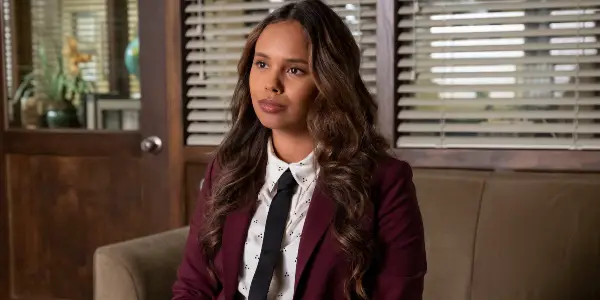
In an attempt to ease the worries of parents and strengthen the security of the school campus, security cameras, metal detectors, and School Resource Officers (SCOs) are implemented into the school, satisfying parents and administrators. Almost immediately, there is a feeling of power in the SCOs, stereotyping and brute strength quickly trickling into their behaviors, with a fight between Justin (Brandon Flynn) and Diego (Jan Luis Castellanos) resulting in both being attacked by the SRO.
In a fury, the students walk out in protest, refusing to give in to the demands of the administration. Frustrated and suffocating under the ill-treatment they have had to bear, their protest calls for action and ignites into fury as their calls fall on deaf ears. Like much of the series, it represents a metaphor for the actions needed in the world, and a dramatization made all too real and relevant as the series’ final seasons release coinciding with the riots and protests following the aftermath of George Floyd’s death. Not since the first season has the series felt so relevant and genuine, and in its final moments, 13 Reasons Why hoped to show why art imitates life.
Fans of the series will likely be satisfied with this final installment. Tying back to the first season, Hannah (Katherine Langford) and her story are not forgotten, yet the growth of these young teens is something not to be overlooked. Through their fictionalized stories, viewers are able to digest many of the complicated topics society struggles to tackle, giving a perspective into the world teens and those who help them are facing.
As Clay and his friends say goodbye to Liberty High, so do we to the relevancy and focus of a series unafraid to look away. As the camera shuts off and we return to reality, as we take in the real world, the question remains, “Are you paying attention?”
What did you think of the final season of 13 Reasons Why? Let us know in the comments below!
13 reasons Why is currently streaming on Netflix.
Watch 13 reasons Why
Does content like this matter to you?
Become a Member and support film journalism. Unlock access to all of Film Inquiry`s great articles. Join a community of like-minded readers who are passionate about cinema - get access to our private members Network, give back to independent filmmakers, and more.













